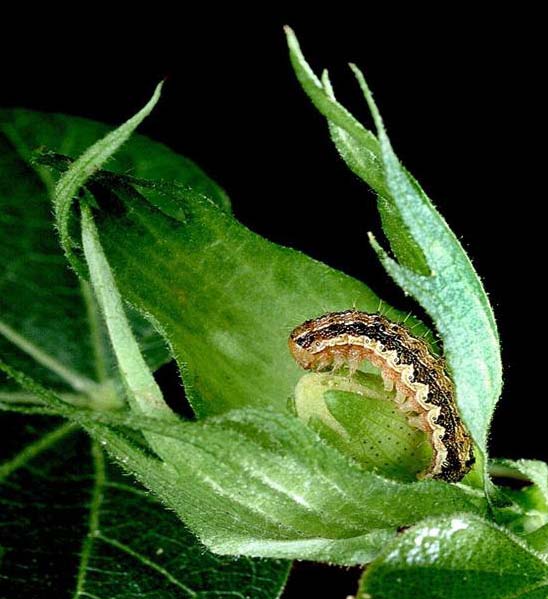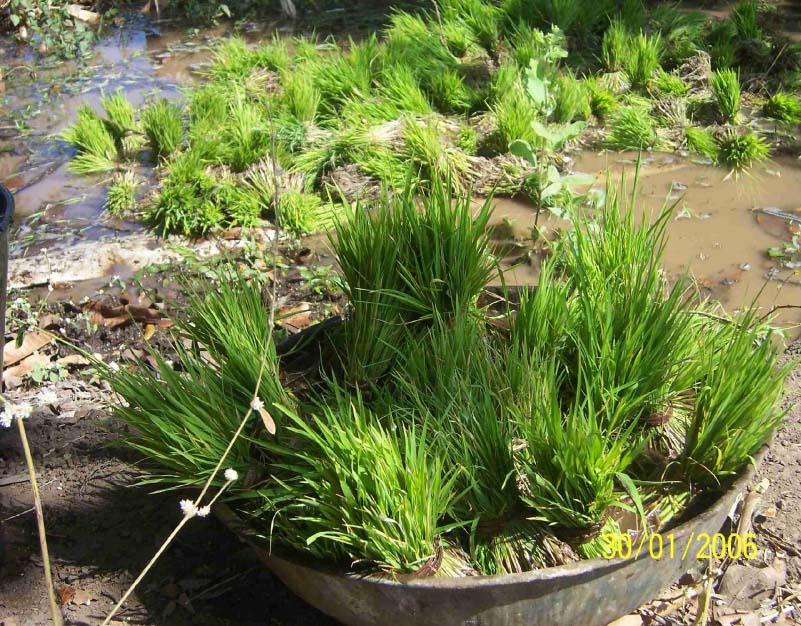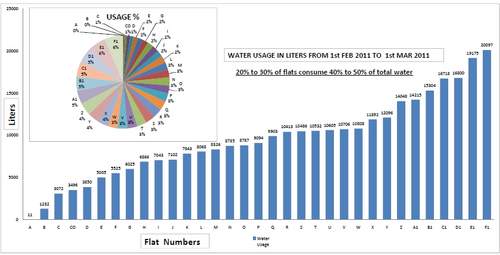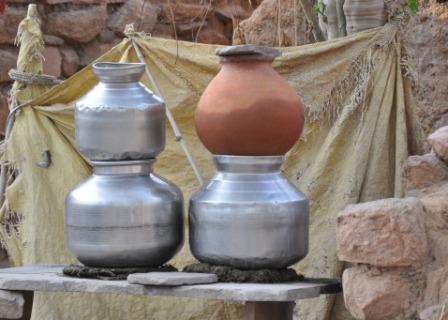Conservation - Reducing Water Usage
Water pollution in villages - A post in Hindi by Ram Naresh Kumar and Sanjay Singh
Posted on 05 Apr, 2011 02:49 PMगांवों में जल प्रदुषण
Tippy tap wins the "2011 DoGooder Nonprofit Video Award" for best thrifty video
Posted on 23 Mar, 2011 05:01 PMThe DoGooder awards are an initiative of See3 Communications and YouTube.
A video by Centre of Excellence for Change on the occasion of World Water Day
Posted on 22 Mar, 2011 11:11 AM
Please share it with Water Sector friends and communities in our Journey to change the way we handle our Water.
Pest and disease management in organic, natural, sustainable agriculture - Presentations from the South Asia Conference on "Outstanding Organic Agriculture Techniques", Bangalore organised by OFAI (2009)
Posted on 20 Mar, 2011 06:17 PM This set of presentations from the conference on Outstanding Organic Agriculture Techniques held during September 2009 at Bangalore deals with pest and disease management practices in organic farming, which rely primarily on preventive and integrated methods.
This set of presentations from the conference on Outstanding Organic Agriculture Techniques held during September 2009 at Bangalore deals with pest and disease management practices in organic farming, which rely primarily on preventive and integrated methods.
Crop production and plan protection in organic farming
This paper by S R Sundararaman presents organic farming as the only recourse for farmers, to save both livelihood and the health of the soil. Organic farming methods enable farmers save money and turn their farmyard waste into value-added products for increasing crop production. Farmers will not have to be dependent on agri-business companies for seeds, fertilizers and pesticides. Our self-reliance is thus preserved. A large portion of our country's foreign exchange is used to pay for the import of petroleum products. By going organic we will also help our country save on valuable foreign exchange. Our land will keep giving us returns for extended periods of time unlike farming as per the green revolution, where the land stays productive for a short time and then becomes sterile.
The uppermost question in the minds of farmers who have recently converted to organic farming or who want to turn organic is how to ensure that crop production does not reduce and how to protect the plants from disease, without the chemical fertilizers and pesticides that their fields have grown used to. This paper provides the answers and it also seeks to reassure all farmers that there is no farm which cannot turn around and produce quality crops in sufficient quantity, using organic farming methods.
Introduction to organic, natural, sustainable agriculture - Presentations from the South Asia Conference on "Outstanding Organic Agriculture Techniques", Bangalore organised by OFAI (2009)
Posted on 20 Mar, 2011 05:44 PM This set of presentations from the conference on Outstanding Organic Agriculture Techniques held during September 2009 at Bangalore provides an introduction to organic farming, and bringing together various issues related to organic farming.
This set of presentations from the conference on Outstanding Organic Agriculture Techniques held during September 2009 at Bangalore provides an introduction to organic farming, and bringing together various issues related to organic farming.
Organic farming can feed the world
This presentation by Claude Alvares, deals with the work of India’s organic farming community and the Organic Farming Association of India (OFAI). It states that the best organic farmers look to the forest for their learning. It details out how one raises plants (or trees) without – (a) NPK (b) Dams and canal irrigation (c) Tractors (d) Pesticides, weedicides, fungicides, homicides (e) Bank credit or bank extension officers (f) Agricultural scientists or universities (g) Negative environmental effects like climate change and (h) Water pollution.
Walk for Water – 2011 - Forum for Organised Resource Conservation and Enhancement (FORCE), 19th March, 2011, New Delhi
Posted on 17 Mar, 2011 10:43 AM Sharing the spirit of ‘The World Walks For Water’ movement
Sharing the spirit of ‘The World Walks For Water’ movement
Organizers:
- Forum for Organised Resource Conservation and Enhancement (FORCE)
- WaterAid
Venue: Rajpath, New Delhi
The Braj Foundation wins the best NGO award for reviving rural water bodies
Posted on 15 Mar, 2011 06:16 PMIn a recent function held in New Delhi, a NGO The Braj Foundation won the award for the Best NGO for the revival of rural water bodies.The foundation is run by a team of committed professionals from various walks of life.
Award ceremony video.
"New Water Policy by 2011" - Droplets
Posted on 09 Mar, 2011 05:46 PM
- New Water Policy by 2011
Nine years after the last document, work is on to put in shape a new water policy for India that will by the end of the year not just lay down a framework for the allocation of water but also take into account the impact of climate change and the remedial steps that need to be taken.
- Japan will extend Rs 2,557 Crore aid
Japan is to extend an aid of Rs. 2,557 crore to India for three projects through its Overseas Development Assistance (ODA) window. The projects pertain to cleaning the river Yamuna in the national capital Delhi, crop diversification promotion in Himachal Pradesh and biodiversity conservation and greening in Tamil Nadu
Domestic water usage analysis for a 32 flat apartment in Bangalore - Kannan Venkitachalam
Posted on 08 Mar, 2011 10:10 AM

Initially used to buy 3-4 tankers per day with limited supply of water like in morning 1.5hrs., Noon 1 hr & Night 1.5hrs for the last 11 to 12 months. Now we have 24 hrs water and buying only 2 tankers per day.






 Rural household saving water at home
Rural household saving water at home